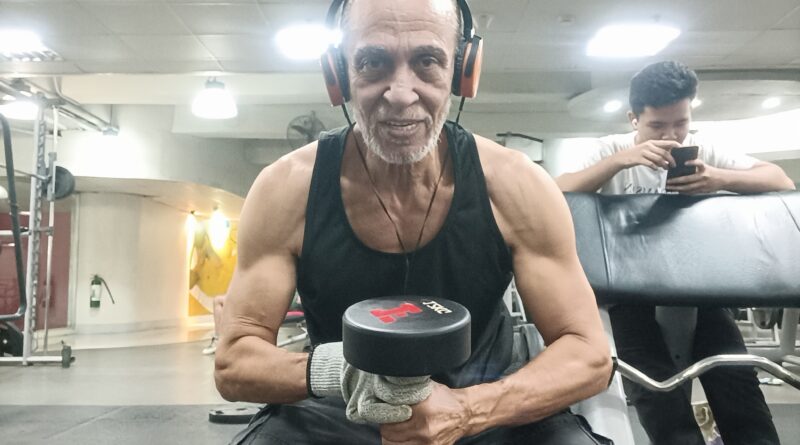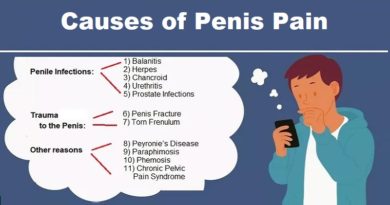Healthy Lifestyle for Men: Effective Tips for Wellness
Last Updated on 02/12/2026 by Helal Medical
In today’s fast-paced world, achieving and maintaining a healthy lifestyle has become a top priority for men worldwide. As awareness around health and wellness grows, men seek information to improve their physical, mental, and emotional well-being. This article highlights popular and trending aspects of a healthy lifestyle for men. It provides practical insights on weight loss and muscle building. You’ll also learn about heart health, balanced diets, work-life balance, mental health, and sleep.
1. Weight Loss and Muscle Building
For many men, weight loss and muscle building are essential for a healthy lifestyle. The desire to achieve a lean, muscular physique is often linked to both aesthetic goals and long-term health benefits.
Men are particularly interested in effective diet plans. They also seek exercise routines that promote fat-burning while increasing muscle mass. This interest has led to a surge in popularity for high-intensity interval training (HIIT), strength training, and resistance workouts. These exercises build muscle. They improve metabolism. This helps to burn calories long after the workout is over.
In addition to workouts, men are focusing on nutrition, seeking diets high in protein and low in carbohydrates. The popularity of intermittent fasting has also risen. Men are looking for ways to balance calorie intake with periods of fasting. This approach helps to promote fat loss without sacrificing muscle. Protein-rich foods like lean meats, eggs, and plant-based alternatives are essential for muscle repair and growth. Supplements like whey protein and creatine are commonly used to enhance workout performance.
2. Heart Health
Heart health is another major focus area for men, particularly as they age. Cardiovascular disease is a leading cause of death among men worldwide. Increasing awareness around this issue has prompted a rise in searches related to improving heart health.
The key to a healthy heart lies in adopting a balanced diet and maintaining regular physical activity. Men are turning to heart-healthy diets. These diets include plenty of fruits, vegetables, and whole grains. They also incorporate healthy fats like omega-3 fatty acids, which are found in fish and nuts. Reducing salt and saturated fats, often found in processed foods, is critical for lowering blood pressure and cholesterol levels.
In terms of exercise, cardiovascular activities like jogging, swimming, cycling, and brisk walking are effective. They improve heart function and circulation. Consistent aerobic exercise strengthens the heart muscle. It reduces the risk of heart disease. It can even help reverse some of the effects of aging on the cardiovascular system.
Stress reduction is also a crucial factor in heart health. Men are increasingly aware of the negative impact of chronic stress on their cardiovascular system. They are seeking techniques to manage stress, such as yoga, meditation, and mindfulness.
3. Healthy Diet Plans
Diet is the cornerstone of a healthy lifestyle, and men are more conscious than ever of the foods they consume. People are increasingly searching for healthy diet plans. They are interested in nutrient-rich diets that support energy levels. These diets also promote muscle growth and overall health.
A healthy diet for men typically includes a balance of macronutrients: protein, healthy fats, and carbohydrates. Many men are now opting for plant-based or Mediterranean diets, which focus on whole foods and minimize the intake of processed sugars and unhealthy fats. Plant-based diets have gained popularity because of their benefits in reducing the risk of chronic diseases. These include heart disease and diabetes. They are also rich in antioxidants, vitamins, and fiber, which contribute to overall well-being.
Intermittent fasting has become a trending dietary strategy. Men limit their eating to specific windows of time. This approach allows the body to enter a fat-burning state during fasting periods. This approach is believed to help with weight control, insulin sensitivity, and metabolic health.
4. Work-Life Balance
A healthy lifestyle goes beyond physical health—it also encompasses mental and emotional well-being. Maintaining a work-life balance is a critical aspect of a man’s overall health, especially in today’s demanding work environment.
More men are searching for ways to manage stress. They want to avoid burnout. They recognize the importance of balancing work with personal time. Strategies for achieving this balance involve setting clear boundaries between work and personal life. It’s also important to prioritize time for hobbies, family, and self-care. Learning to say no to overwhelming commitments is essential.
Practices like time management, regular breaks during the workday, and scheduling time for physical activity or relaxation are essential in maintaining this balance. Studies show that men who prioritize work-life balance are more productive. They are happier. They are also less likely to suffer from chronic stress or burnout.
5. Mental Health and Stress Management
Mental health has become an increasingly important topic for men, as the stigma surrounding discussions about mental well-being continues to diminish. Men are now more open to seeking help for mental health challenges like anxiety, depression, and stress. They recognize that mental health is just as important as physical health.
Popular searches reveal a growing interest in meditation, mindfulness, and therapy as tools for managing mental health. Meditation and mindfulness practices help men reduce stress, improve focus, and cultivate a sense of calm. These techniques are useful to manage the pressures of work and personal life.
Therapy, whether individual or group-based, is also becoming more accepted as a way of addressing mental health concerns. Online therapy platforms have made it easier than ever for men to access mental health services without the stigma of visiting a physical office.
6. Improved Sleep Habits
Finally, sleep is a critical part of a healthy lifestyle that many men focus on improving. With the rise of sleep-related health issues like insomnia and sleep apnea, more men are searching for ways to enhance their sleep quality.
Good sleep hygiene practices include creating a consistent sleep schedule, reducing screen time before bed, and ensuring a comfortable sleep environment. Men are also looking for ways to address issues like snoring and poor sleep posture, which can affect the quality of rest and overall health.
Aiming for seven to nine hours of sleep per night is essential for maintaining energy levels, cognitive function, and emotional stability. Men who prioritize sleep are less likely to experience fatigue, mood swings, or stress-related health problems.
Conclusion
In conclusion, maintaining a healthy lifestyle for men encompasses several key areas. These include weight loss, muscle building, heart health, diet, work-life balance, mental health, and sleep. By focusing on these areas, men can improve their overall well-being and lead healthier, more fulfilling lives. As trends evolve, the focus remains on adopting balanced, sustainable practices that support both physical and mental health. Whether through improved diet, regular exercise, stress management, or better sleep, men are finding new ways to achieve optimal health and wellness.
Read More About Men’s Health:
- Men’s Health Interesting Facts: Comprehensive Overviewmen-s-health-interesting-facts-about-a-comprehensive-overview
- Oct 3, 2024
- Common Testicular Diseases: Protecting Men’s Healthcommon-testicular-diseases-protecting-mens-healthT
- Mar 11, 2023
- Men’s Health After 40: A Guide to Thriving in Your Primemens-health-after-40-a-guide-to-thriving-in-your-prime
- Feb 1, 2026
- GenF20 / For Men strength & better healthproduct › genf20-for-men-strength-better-health
- Aug 31, 2022
- Healthy Lifestyle for Men: Effective Tips for Wellnesshealthy-lifestyle-for-men-effective-tips-for-wellness
- Oct 17, 2024
- Understanding the Functions of Testosterone: The Essential Hormone for Health and Well-beingunderstanding-the-functions-of-testosterone-the-essential-hormone-for-health-and-well-being
- Sep 20, 2024
- Understanding the Prostate Gland, A Comprehensive Guideunderstanding-the-prostate-gland-a-comprehensive-guide
- Feb 7, 2026
- Are Male Enhancement Pills Safe for Men with Hypertension?are-male-enhancement-pills-safe-for-men-with-hypertension
- Feb 7, 2026
- Causes of low sex drive (libido) in mencauses-of-low-sex-drive-libido-in-menconditions/
- Feb 24, 2021
- Penile Pain: Causes, and Treatmentpenile-pain-causes-and-treatment
- Mar 20, 2023
- Testosterone Role in Libido in Men and Women: for Medical Practitionerstestosterone-role-in-libido-in-men-and-women-for-medical-practitioner
- Mar 3, 2023
- Semen Quality and Fertility: What Every Man Should Knowsemen-quality-and-fertility-what-every-man-should-know
- Mar 4, 2023
Discover more from Helal Medical Manila
Subscribe to get the latest posts sent to your email.




